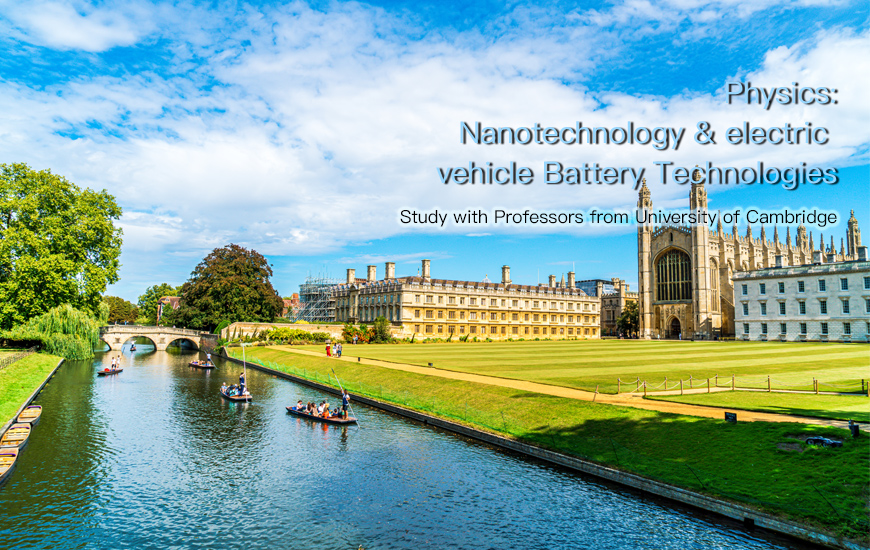Physics: Nanotechnology & electric vehicle Battery Technologies


With the continuous progress of science and technology, especially in the electronic industry, which is a sunrise industry, nanotechnology has been greatly developed, mainly focused on the electronic composite film, the use of ultramicron particles to improve the electrical, magnetic and magneto-optical properties of film materials, in addition to magnetic records, nano sensitive materials, etc.. With the increasing improvement of people's living standards, and people's attention to environmental protection has been strengthened. Air quality and industrial wastewater treatment have become a symbol of the quality of life in cities. Nanomaterials have great prospects in air purification and industrial wastewater treatment because of their special surface adsorption properties.
We will take a look at Nanotechnology in everyday use, gain an understanding of the basic underpinning principles and see where this exciting field is heading. We will start by looking at the origins of nanotechnology, deep in the mists of time when science thought it had all the answers, and then it became clear from one discovery after another that this was not the case. From Quantum mechanics to relativity, science was shaken at its roots over a century ago, and this led to the interest in all things small. We will then look at what nanotechnology really is, and how and why the properties of nanometer-sized objects are fundamentally different to larger things, and how we can take advantage of this. We will look at specific examples of nanotechnology applications in healthcare, electronics, textiles, defence, automotive industry, fuels, food, etc. We will then delve into looking at electric vehicle battery technologies, and will look at Tesla’s new Silicon-nanowire anode technology.
High school/college/students (interested in nanotechnology/new energy technology/electric vehicle battery technology or related majors)

Colm Durkan is a Professor of Nanoengineering Science at the University of Cambridge, and is the deputy head of the Engineering department, in charge of all undergraduate teaching – this is over 10% of the university of Cambridge’s undergraduates. He obtained his degree and PhD in Physics from Trinity College Dublin during which time he designed and constructed the first scanning near-field optical microscope (SNOM) in the country and made significant advances in our understanding of the mechanisms behind image formation in such systems. He then spent a year in Konstanz, Germany working in collaboration with ZEISS on the construction of a commercial microscope system.
In 1997 he moved to the University of Cambridge, initially as a research associate in the Nanoscale Science group, and since 2000, as a faculty member. During this time he has led a research group consisting of around 15 members, been head of the Nanoscience centre for four years (2009-2010 and 2015-2016), published over 100 papers, given over 100 talks, written a successful textbook on Nanoelectronics, and developed several scanning-probe microscopes and new measurement techniques. He has also just published a popular science book on Nanotechnology for the layperson, and is currently completing a textbook on the fundamentals of circuit analysis for electrical engineers.
Colm has secured funding from and collaborated with several leading companies as well as government funding agencies, to the tune of over £3 Million in the past few years. He lectures and teaches in electronics, electromagnetism, quantum mechanics and nanotechnology. He is on the editorial board of Ultramicroscopy and Imaging & Microscopy, and is a fellow of Girton College, Cambridge, the Institute of Physics and the Institution of Engineering and Technology.
The University of Cambridge is a collegiate public research university in Cambridge, United Kingdom. Founded in 1209 and granted a royal charter by King Henry III in 1231, Cambridge is the second-oldest university in the English-speaking word and the world's fourth-oldest surviving university. The university grew out of an association of scholars who left the University of Oxford after a dispute with the townspeople. The two "ancient universities" share many common features and are often referred to jointly as "Oxbridge".
Cambridge is formed from a variety of institutions which include 31 semi-autonomous constituent Colleges and over 100 academic departments organised into six schools. As of 2019, Cambridge is the top-ranked university in the United Kingdom according to all major league tables. It is a member of numerous associations and forms part of the "golden triangle" of English universities. The university has educated many notable alumni, including eminent mathematicians, scientists, politicians, lawyers, philosophers, writers, actors, monarchs and other heads of state. As of October 2019, 120 Nobel Laureates, 11 fields Medalists, 7 Turing Award winners and 14 British Prime Ministers have been affiliated with Cambridge as students, alumni and faculty or research staff. University alumni have won 194 Olympic medals.
For more information, please contact us.

